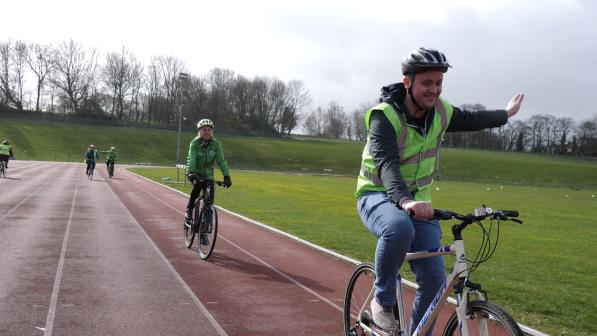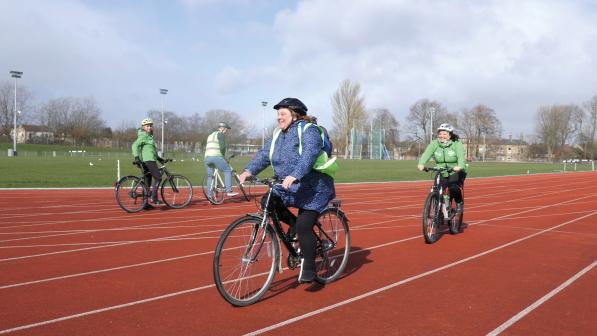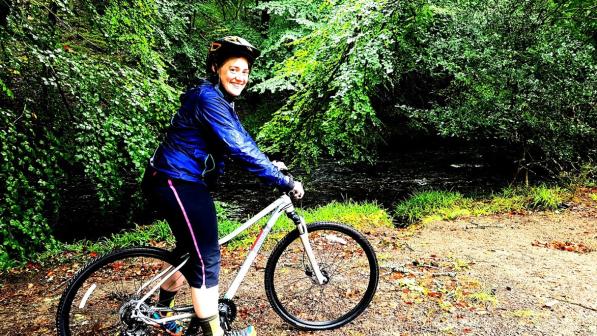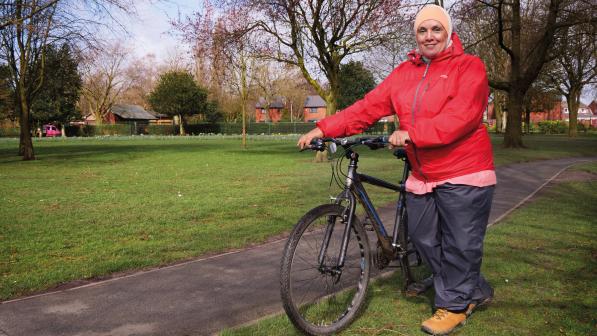How Cycle for Health helps people recover from psychosis

Losing touch with everyday reality – what’s usually referred to as a ‘psychotic experience’ – can be traumatic and difficult, with recovery a long and complex process.
Episodes of psychosis can cause people to become isolated, as it’s common to experience anxiety, shame and fear about participating in social life or interacting with institutions. To help with this, Maryam* was encouraged to take part in a Cycle for Health group as part of her recovery.
“I wanted to be part of a group, and to take some time to kind of learn some new techniques and things,” said Maryam. “I’m interested in cycling, and it kind of cheered me up because I’ve been quite depressed and stuff.”
Cycle for Health is a programme run in West Yorkshire by Cycling UK using funding from the West Yorkshire Combined Authority. Targeted at adults with poor health, including mental health, the groups use cycling to provide a route into regular activity, building fitness and self-esteem.
“I thought I could join this group, to meet other people like myself and try to make some friends and try to learn new things and to talk to some new people,” said Maryam.
The group Maryam took part in happened to be organised in her local area, with participants mostly from the same community as her. This made it easier for her to take part and be sociable with people in the group.
“I’d like to keep in contact with people because they’ve been quite friendly with me,” said Maryam. “It’s been nice being part of the group.”
I like to give people opportunities and experiences that they can look back on once they become well. That way they can look back on their experiences in a fond way, rather than a traumatic way
Habib Dadhiwala, support time recovery worker at Kirklees Insight
Maryam was told about the group by Habib Dadhiwala, a support time recovery worker at Kirklees Insight, a group that supports younger people experiencing psychosis with improving their wellbeing and life outcomes.
A big part of what Habib does is encouraging his clients to face their fears, in a safe and supportive environment. “I try to give my clients something unique,” said Habib, “an opportunity they wouldn’t do every day, especially during their recovery.”
“When there are times for people when everything is a barrier, everything is fear and anxiety, I like to give them something to go and do they would never even think that they could do it.
“If we’ve got their adrenaline pumping, then we’ve got it.”
The value of these challenging yet structured experiences is to help clients to reframe their experience of psychosis more positively, reducing the often traumatic nature of recovery.
“I like to give people opportunities and experiences that they can look back on once they become well,” said Habib, “and say, actually what I went through wasn’t so bad. That way they can look back on their experiences in a fond way, rather than a traumatic way.”
For Habib, this philosophy made Cycle for Health an obvious place to refer his clients. Riding a bike can seem scary at first, but it’s a great way to feel more empowered and confident. Learn more about Cycle for Health at CityConnect
*The beneficiary’s name has been changed to protect their identity





